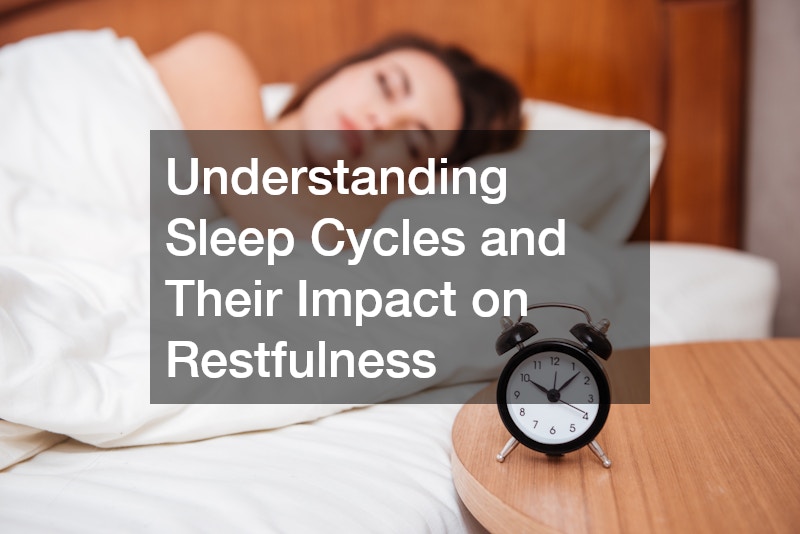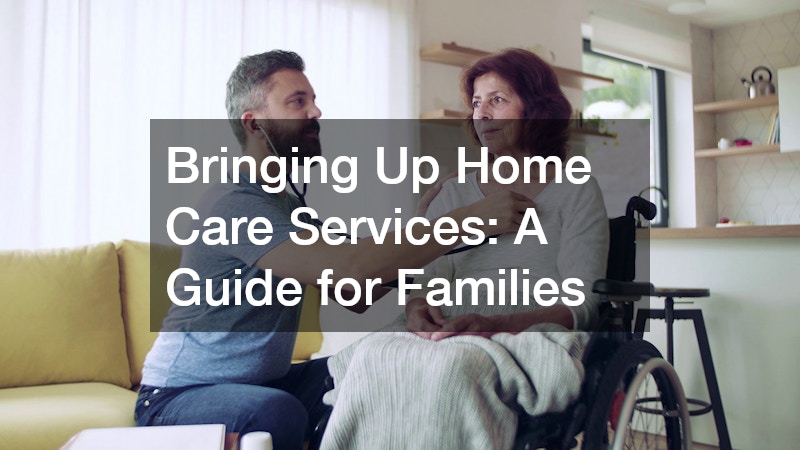For many people, having trouble trying to sleep can become a nightly battle that has significant impacts on their overall well-being. Sleep is often an overlooked aspect of health, despite its critical role in physical, emotional, and cognitive functioning. Understanding the factors that disrupt sleep can empower individuals to seek effective solutions and ultimately improve their quality of life.
In this article, we will explore various elements that contribute to poor sleep, ranging from medical conditions like sleep apnea to lifestyle choices and environmental influences. We will discuss how local resources, including chiropractic care and specialized health services, can be leveraged to address these issues. Our goal is to provide a comprehensive guide for those who are having trouble trying to sleep and to outline actionable steps toward achieving restful nights.
Moreover, by incorporating specific keywords related to sleep health, this article will serve as a valuable resource for individuals experiencing sleep disturbances. Whether it’s addressing widespread conditions like peripheral artery disease or focusing on the comforts of one’s sleeping environment, every facet plays a role in the sleep experience. Let’s delve into each section to fully understand the challenges and solutions associated with getting a good night’s sleep.
Understanding Sleep Cycles and Their Impact on Restfulness

Sleep is divided into multiple cycles, largely known as REM (Rapid Eye Movement) and non-REM sleep, which together constitute the sleep architecture. Each cycle serves a unique purpose, aiding in critical processes such as memory consolidation, emotional regulation, and physical recovery. A disruption in these cycles often leads to feelings of fatigue and is a common complaint for those having trouble trying to sleep.
The body typically completes several sleep cycles over a span of eight hours, with each cycle lasting around 90 minutes. An interruption during these cycles can prevent the individual from reaching deep sleep, where the body performs essential repair functions. Therefore, a better understanding of one’s sleep patterns may help in identifying specific reasons for having trouble trying to sleep.
To enhance sleep quality, individuals can focus on regular sleep schedules, optimized by establishing a soothing pre-sleep routine. This can involve practices like reading, taking warm baths, or engaging in light stretches. Awareness of the body’s natural rhythms will not only help in understanding sleep cycles but may also lead to better strategies for overcoming challenges related to poor sleep.
The Effects of Sleep Apnea on Your Overall Health

Sleep apnea is a serious sleep disorder characterized by pauses in breathing or shallow breaths during sleep. This condition can significantly diminish sleep quality, often resulting in individuals feeling excessively tired during the day, leading to difficulties in focus and memory, and increasing the risk of chronic conditions such as hypertension and diabetes. For those having trouble trying to sleep, it’s essential to consider sleep apnea as a potential culprit.
Local sleep apnea treatments are available for individuals seeking solutions, including CPAP (Continuous Positive Airway Pressure) devices, lifestyle changes, and specialized therapeutic options. Consulting healthcare professionals knowledgeable in sleep medicine can lead to tailored interventions that address specific symptoms of sleep apnea. Moreover, recognizing the interrelation between sleep apnea and mental health is also crucial for comprehensive treatment.
Given the potential severity of untreated sleep apnea, early detection and intervention are vital. If you suspect that this disorder may be affecting your sleep, seek evaluation from a doctor or a local sleep clinic. With appropriate management, those having trouble trying to sleep due to apnea can indeed find relief and regain restful nights.
Exploring Circulation Issues That Can Disrupt Sleep

Circulation issues, including conditions such as peripheral artery disease, can have profound effects on a person’s ability to achieve quality sleep. Poor circulation can lead to discomfort, pain, and restless legs, all of which are significant barriers to relaxation and restful sleep. For individuals having trouble trying to sleep, identifying circulation problems could be instrumental in finding the right treatment.
Improving circulation through lifestyle changes is one approach to consider. Incorporating regular physical activity, maintaining a balanced diet, and avoiding tobacco and excessive alcohol can benefit overall blood flow. Those facing significant challenges may also want to consult specialists or consider therapies offered at local wellness centers.
In some cases, professional intervention, such as consulting a chiropractor, may help alleviate discomfort associated with muscular or skeletal issues that could affect circulation. Chiropractic adjustments could provide relief from pain, leading to improved sleep quality. Ultimately, understanding how circulation influences sleep can guide the path toward more effective solutions for individuals struggling to sleep.
How Chiropractic Care Might Contribute to Better Sleep

Chiropractic care is often overlooked as a viable solution for sleep issues; however, it can play a significant role in addressing underlying physical conditions that disrupt restfulness. Misalignments in the spine can lead to discomfort, pain, and tension, making it difficult to achieve a restful night’s sleep. For individuals having trouble trying to sleep, seeking help from a chiropractor can be a step toward addressing these physical ailments.
Chiropractors utilize various techniques to align the spine and improve overall bodily function, which can reduce pain and enhance relaxation. Regular chiropractic adjustments can also promote better posture and nerve function, both of which contribute to improved sleep quality. By addressing core issues related to discomfort, individuals may find considerable improvements in their ability to sleep peacefully through the night.
In addition to adjustments, chiropractors can provide guidance on sleep posture and other lifestyle recommendations that support long-term sleep health. A holistic approach, including chiropractic care and tailored therapeutic strategies, can be particularly beneficial for those who are having trouble trying to sleep. By focusing on both physical and mental wellness, individuals can develop a robust strategy for achieving meaningful rest.
Creating a Relaxing Environment for Enhanced Sleep Quality
The environment where sleep occurs plays a pivotal role in sleep quality. A calming atmosphere can make the difference between a restless night and restorative slumber. For those having trouble trying to sleep, creating a relaxing bedroom environment may positively impact their sleep experience.
To enhance sleep quality, consider the aspects of your bedroom: reduce noise, lower the temperature, and improve lighting. Utilizing blackout curtains and sound machines can minimize distractions that prevent falling asleep. Additionally, investing in a comfortable mattress and pillows tailored to personal sleep preferences can provide significant benefits.
It’s also important to declutter the sleeping space to avoid unnecessary stress and distraction. A tidy and serene environment encourages relaxation before bed. For individuals struggling with sleep, the simplest changes can lead to substantial improvements in sleep health.
The Importance of Air Quality in Promoting Better Rest
Air quality within the sleeping environment is paramount in achieving restful sleep. Poor air quality can lead to various health issues, including allergies, difficulty breathing, and sleep disturbances. Those having trouble trying to sleep should consider the quality of their air as a significant factor worth addressing.
Improving air quality can be as simple as investing in an air purifier to reduce allergens and airborne pollutants present in the home. Regularly maintaining ventilation systems and using duct cleaners can ensure that the air circulating through your living environment is as clean as possible. Additionally, keeping windows open when weather permits allows for fresh air, promoting an inviting atmosphere for sleep.
Awareness of indoor air pollutants, such as dust, chemical residues, and mold, is crucial. Taking preventative measures, such as routine cleaning and maintenance, can contribute significantly to a healthier sleeping environment. By prioritizing air quality, those struggling with sleep may find improvements in their overall sleep quality and well-being.
Recognizing the Impact of Mold and Mildew on Your Sleep Space
Mold and mildew can create a hostile environment for sleep, leading to respiratory difficulties and allergic reactions, which can exacerbate sleep issues. Exposure to these conditions has been associated with numerous health problems, including poor sleep quality. For individuals having trouble trying to sleep, eliminating mold and mildew should be a priority in creating a conducive sleeping environment.
Regular maintenance and inspections of the home can help identify potential mold growth areas, particularly in damp locations like bathrooms and basements. Employing professional mold and mildew removal services may be necessary for sizeable infestations. Keeping humidity levels regulated and ensuring proper ventilation throughout the home can prevent mold from becoming a persistent issue.
Addressing mold and mildew not only provides health benefits but also improves the overall ambiance of the sleeping area. A clean and healthy environment allows for better relaxation, which is essential for quality sleep. By prioritizing mold and mildew removal, individuals can reclaim their sleeping space and enhance their chances of finding restful slumber.
How Foot and Ankle Discomfort Can Affect Sleep Patterns
Many individuals may overlook the impact of foot and ankle discomfort on their sleep quality. Painful conditions in these areas can lead to tossing and turning, preventing restful sleep. For individuals having trouble trying to sleep, understanding how foot and ankle discomfort might be contributing to their sleep issues is critical.
Consulting a specialized foot and ankle center can help diagnose and treat underlying conditions such as plantar fasciitis or tendonitis. By addressing issues at their source, individuals may experience significant relief from pain and discomfort that would otherwise disrupt sleep. Treatment options may range from physical therapy to orthotic devices that can provide better support while sleeping.
Maintaining a proper bedtime routine that includes foot care, such as soaking and stretching, can also have a positive impact on one’s sleep experience. Developing healthy habits today can pave the way for better nights in the future. Emphasizing foot and ankle health can be a hidden key to overcoming sleep challenges and achieving the restful slumber many seek.
The Relationship Between Lifestyle Choices and Sleep Challenges
Lifestyle choices significantly influence sleep patterns and overall quality. Factors such as diet, exercise, and technology use during the evening can either enhance or degrade sleep quality. Individuals having trouble trying to sleep should review their daily habits to see where improvements can be made.
A balanced diet rich in nutrients can promote better sleep, while excessive caffeine or sugar consumption, particularly in the hours leading up to bedtime, can be detrimental. Establishing a regular exercise routine through helpful additions like a pool, avoiding vigorous activity close to bedtime, not only enhances physical health but may also lead to improved sleep quality. In addition, limiting screen time before bed can drastically reduce disturbances to the natural sleep-wake cycle. Reaching out to a pool builder or deck contractor can help equip your home to structure a more healthy-minded life.
Each choice contributes to the overall sleep experience, and small adjustments can lead to positive outcomes. For those utilizing substances or experiencing stress from activities like navigating a dentist appointment or attending a substance abuse treatment center, it’s essential to seek support and manage these challenges collaboratively. By prioritizing healthy lifestyle habits, individuals may discover a pathway to overcome their sleep difficulties.
Preparing for Health Appointments: Considerations for Better Sleep
Health appointments can sometimes induce anxiety, which may further contribute to having trouble trying to sleep. Preparing for these visits can alleviate stress and promote better mental clarity ahead of time, which can facilitate restful sleep. It’s highly beneficial to take steps to increase your comfort before approaching an appointment with healthcare providers.
Creating a list of questions or concerns related to sleep can help guide conversations with physicians or specialists, ensuring that you receive the most pertinent information about your health. Additionally, establishing pre-appointment routines, such as mindfulness or relaxation techniques, can help calm nerves. Prioritizing self-care before these engagements can lead to more productive appointments and decrease sleep disturbances.
With thoughtful preparation, individuals can increase their overall confidence and decrease the anxiety associated with medical appointments. This proactive approach can lead to better sleep quality, which is crucial for maintaining overall health. Enhanced management of sleep-related issues will ultimately contribute to a more restful night’s sleep.
The Role of Evening Routines in Achieving Restful Sleep
Establishing a calming evening routine is vital in preparing the body for sleep. This routine can signal to your brain that it’s time to wind down, which may significantly enhance sleep quality. For individuals having trouble trying to sleep, a well-structured evening routine can be the key to overcoming these struggles.
Activities such as reading, gentle stretching, or practicing yoga can create a soothing atmosphere conducive to sleep. It’s advisable to reduce exposure to bright lights, particularly blue light from screens, as it can disrupt the melatonin production necessary for sleep. Moreover, incorporating deep breathing exercises or meditation during the evening can further enhance relaxation and prepare the mind for restful slumber.
Constructing a routine allows for consistency, which is essential for reinforcing healthy sleep habits. This sense of predictability can help individuals unwind and detach from daily stressors, paving the way for an improved sleep experience. By prioritizing this routine, those having trouble trying to sleep can ultimately cultivate deeper, more restorative sleep.
Understanding How Hydration Can Influence Your Sleep Experience
Hydration plays a crucial role in various bodily functions, including sleep quality. Dehydration can lead to discomfort, headaches, and a general sense of malaise, making it difficult to sleep soundly. For individuals having trouble trying to sleep, reviewing daily hydration habits can uncover potential problems.
While staying hydrated is important throughout the day, attention should be paid to fluid intake in the hours leading up to bedtime. Consuming high amounts of liquids too close to sleep can lead to frequent trips to the bathroom during the night, which can disrupt deeper sleep cycles. Finding a balance in hydration is key, ensuring that the body is sufficiently hydrated without promoting sleepless interruptions.
Utilizing local spa water delivery services can provide easy access to quality water, encouraging better hydration habits. This convenience may foster a more disciplined approach to fluid intake during the day. Ultimately, improved hydration can contribute to better overall health, and in turn, enhance sleep quality for those experiencing difficulties.
Finding Local Resources for Improving Your Sleep Health
Exploring local resources dedicated to sleep health is an essential step for individuals experiencing difficulties in achieving restorative sleep. Many communities provide access to a variety of services, including clinics specializing in sleep medicine, chiropractic care, and wellness centers. For those having trouble trying to sleep, leveraging these local resources can be advantageous in uncovering tailored solutions.
Local sleep apnea treatments, for example, can lead to a more personalized approach to managing sleep disorders, ensuring that individuals receive help that’s directly aligned with their needs. Furthermore, wellness centers often host workshops and support groups, providing valuable knowledge and community connections. Engaging with these resources can empower individuals to actively take control of their sleep health.
Networking with professionals within the community can lead to enhanced understanding and a repertoire of techniques to improve sleep quality. By utilizing available resources, individuals can create a supportive environment conducive to better sleep long-term. Approaching sleep health holistically will ultimately enable individuals to find restorative sleep solutions tailored to their needs.
In conclusion, having trouble trying to sleep is a complex issue that touches upon numerous aspects of health and well-being. By understanding the factors involved—from sleep cycles and health conditions like sleep apnea, to environmental factors and lifestyle choices—individuals can develop strategies to combat sleep disturbances effectively. Emphasizing the importance of local resources, proper hydration, and creating a relaxing environment will ultimately lead to improved sleep health.
As we strive for better sleep, holistic wellness approaches, including routine adjustments, chiropractic care, and promoting air quality, can provide significant benefits. A proactive mindset that encourages self-care, attention to health, and connection with available local resources will guide individuals toward restful nights. Together, we can tackle the problem of inadequate sleep and rediscover the joy of peaceful slumber.
By prioritizing sleep health and addressing the myriad of challenges associated with it, individuals can reclaim their nights and enhance their overall quality of life. The journey to better sleep might require effort and commitment, but the rewards of restful nights are undoubtedly worth it.




